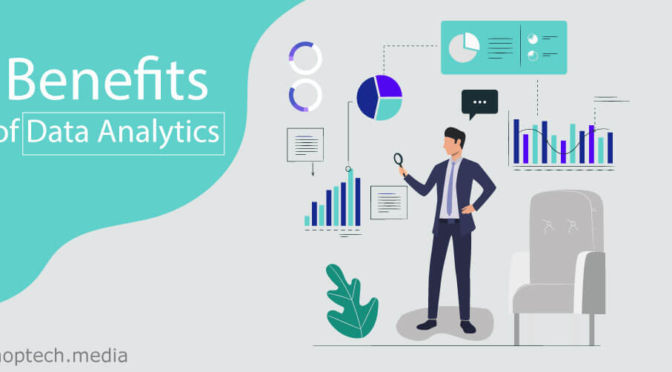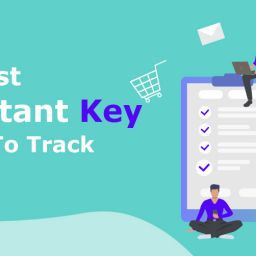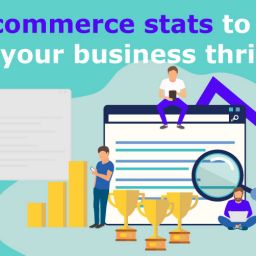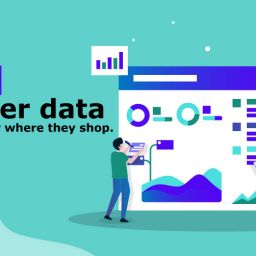Analytics data enhances retail business in multiple ways that you can imagine! The possibilities are endless! Retail analysis is flush with sources of data, including information that can be derived from sales, inventory, traffic and marketing. Turning all this information into something useful, however, requires an understanding of where retail data systems fit into the bigger picture.
Why Should Ecommerce Retailers Invest in Data Analysis?
Data analytics feed into and inform your marketing strategy and content publication – boosting effectiveness and streamlining your supply chain and logistics operations significantly! As a result, improving the view and understanding of every element of an ecommerce business and the organization that runs it.
“Knowing what people want and what they respond to makes it easy to get your product mix and inventory levels just right; while for those retailers with physical and digital storefronts, it will help dictate store layout and experience and ensure optimum channel alignment – everything they need to stand out from the competition.”
says Kuehl.
The Power to Know
To succeed in the new digital retail environment, companies must learn how to collect and then use the raw data generated by the technology that underpins everything. Combined with advanced techniques and technologies, the base metal of data is transmuted into digital gold: actionable insights and business value where it matters most – the bottom line.
However, without the right tools and the access to data analytics that can stitch together structured and unstructured data for clearer insights, an organization cannot have a complete picture of their customers or become proactive to their needs.
Personalization Offers Many Opportunities for Your Online Store.
Insights can be derived from mobile apps, website purchases, in-store sensors and point-of-sale units. Your marketing appeals can then be tailored to the specific tastes and desires of the customer.
You can increase revenues and retain customers with accurate personalized recommendations Amazon-style. Data analysis can segment customers, so you can focus on the most profitable ones, while understanding key metrics like their likelihood of making purchases and lifetime value analysis.
All of this is data intensive. Customer analytics calls for a back end of systems that can store data securely and make it readily available for you at the point of decision making.
Right Analytics Encourages Engagement
Analytics data enhances retail business because it makes you approach customer data analysis with a highly experimental attitude. Let’s say you want to determine the best product for your company offer. Testing methods can be utilized to discover how to maximize return on investment of each product.
Right analytics also increase the duration of engagement. It kept folks on the site longest, drove sales and encouraged return engagement. Customers expect a certain level of communication with your brand. Whether you desire feedback or not, people will share their opinions about your business.
Using Predictive Analytics
One of the more powerful use of store analytics data is it allows analysis of the business future! This is called predictive analysis!
Predictive analysis allows shop managers and owners to figure out where to put their money for expansion before the next sales season hits. This will be one of the biggest goals of many retail analysis efforts this holiday season and into 2020. Getting ahead of trends, decisions can be made about how many items to put on shelves, what times of day customer support is most needed, and where to place sales associates in-store. In simple terms, it transforms ecommerce data into analysis for future goals.
Additional Resource on ecommerce analytics data
Ecommerce Analytics Presents Huge Advantages For Your Online Biz
Using the Store Analytics Data to Your Advantage
In Conclusion
Data analytics enhances retail business operations and performance because it allows a company to have a robust base to work from.










